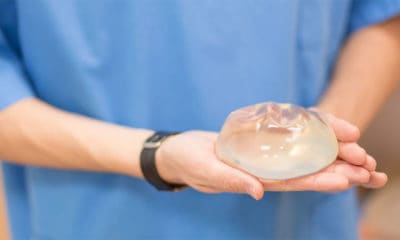When choosing a plastic surgeon, there are many factors to take into consideration, but perhaps the most important factors being a surgeon’s credentials. “Credentials” can be a broad and confusing topic. Each plastic surgeon’s website lists a variety of qualifications, degrees or association memberships, making it difficult to distinguish those that are relevant and important apart from those that don’t carry any weight in the plastic surgery community.
Dr. Brian Brzowski of Utah agrees that it is important for every patient to learn as much as they can about a physician’s credentials before undergoing any plastic surgery.
Board Certification: Most Important Plastic Surgeon Credentials
“Obviously, first and foremost in my mind is that it needs to be a board certified plastic surgeon,” emphasizes Dr. Brzowski. Unfortunately, there are many physicians who call themselves plastic surgeons when their formal surgical training was in a different specialty. They may have trained in general surgery or as an ear, nose and throat specialist, and later decided to practice as a cosmetic surgeon without undergoing the additional training or complete the residency required to become board certified in plastic surgery. While this could be OK in the end, it’s years and years shy of the kind of training board certified plastic surgeons undergo, and continue to over their careers.
Which Board Certification Matters?
The plastic surgeon you select should be certified by the American Board of Plastic Surgery (ABPS). The ABPS is the only medical board in the United States recognized by the American Board of Medical Specialties (ABMS) which certifies physicians in plastic and reconstructive surgery. The ABMS has a very rigorous process for the evaluation and certification of each of over one hundred and fifty different specialties.
The Gold Standard in Plastic Surgery
When your surgeon is board certified by the American Board of Plastic Surgery, you can rest assured that they have undergone extensive training, completed a residency in plastic surgery and have passed both written and oral exams specific to the field of plastic surgery. By visiting the American Board of Plastic Surgery’s website, patients can search a doctor’s name in an online database and locate additional proof of certification.
ABPS Board Certified Plastic Surgeons:
- Completed 5+ years of approved surgical training
- Completed a plastic surgery residency
- Passed comprehensive oral and written exams given by American Board of Plastic Surgery
Surgeon Credentials: National Plastic Surgery Organizations
On a national level, Dr. Brzowski’s credentials include membership in both the American Society of Plastic Surgeons (ASPS) and the American Society for Aesthetic Plastic Surgery (ASAPS). These globally respected plastic surgery organizations offer members annual scientific and educational meetings. “By being a part of these larger organizations, doctors can help those organizations advocate for the patient,” he adds. Participation is both isn’t necessarily better than just one, as the two societies generally focus on different aspects of plastic surgery.
The Link Between Surgeon Credentials & Patient Advocacy
Prior to 1998, insurance companies were not required to cover reconstructive breast surgery for patients who had undergone mastectomies for breast cancer. The change in federal law was due in large part to the efforts of surgeons working together within national plastic surgery associations, such as the American Society of Plastic Surgeons. These societies work to promote the efficacy of expert surgeons while also providing the best legal information for patients.
Surgeon Credentials: State, Local and Specialty Plastic Surgery Organizations
Plastic surgeons on both a state and regional level join together to form smaller organizations to better serve patients in their vicinity. “When you’re a member of your local plastic surgery society, they know you intimately,” shares Dr. Brzowski. “Unlike other national organizations, where they may not know you personally, when your neighbors and your colleagues – fellow plastic surgeons – feel that you’re worthy to be one of their members, I think it reassures patients very much that that plastic surgeon has adhered to a certain level of ethical standards. That they practice good medicine, that they’re safe, and that for the most part they are an above board plastic surgeon, which we know sometimes isn’t always the case.”
Other plastic surgery societies exist based entirely on specialties, such as a society devoted to the study and advancement of rhinoplasty procedures or breast surgery. These procedures all fall under the broader umbrella of plastic surgery. Specialty groups provide plastic surgeons with a community setting in which to share ideas and innovations related to procedures they focus on within their practice, as well continuing to hone their own skill.
If a Plastic Surgeon does not Belong to Any Organizations, is it a Red Flag?
Not necessarily. If a surgeon chooses not to be a member of a national or local plastic surgery organization, it does not mean they are unethical. However, knowing a surgeon is part of an organization that requires a certain level of medical standards and maintains a code of ethics does give patients an extra level of confidence in the surgeon they choose.
“I can say even in our state, having been the Utah Plastic Surgery Society president, there are instances where ethical violations occur and we do expel members,” shares Brzowski. Surgeons who choose to be a part of plastic surgery in both national and local levels are holding themselves accountable to other surgeons and to their communities.
















Facebook
Twitter
Instagram
YouTube
RSS